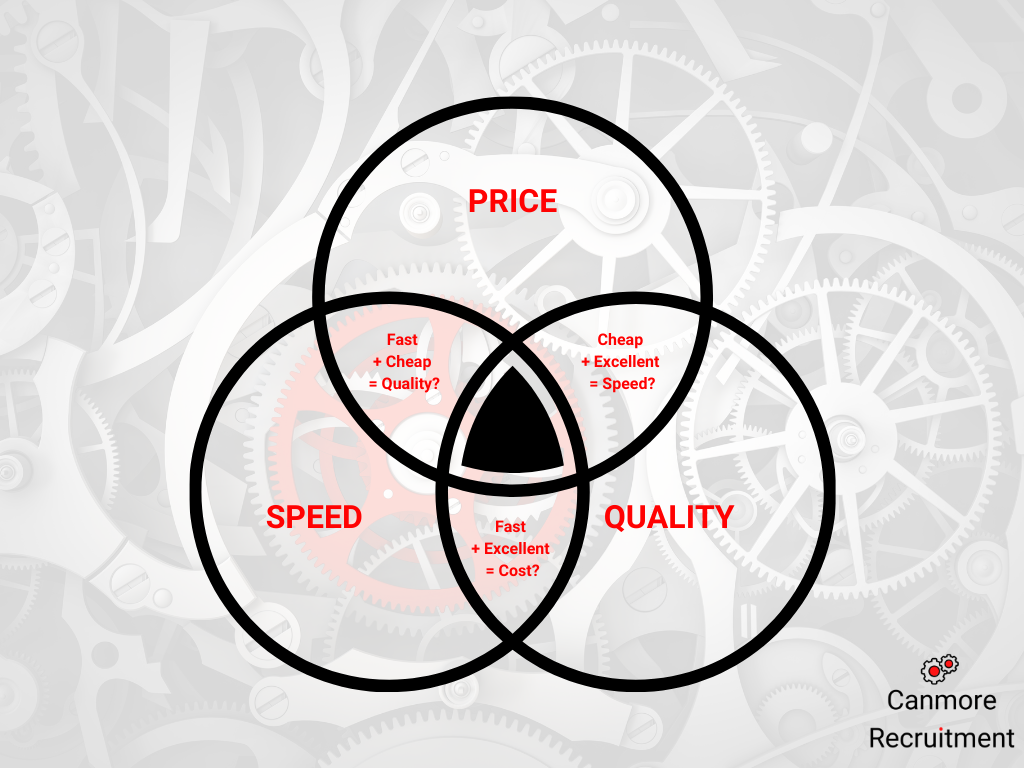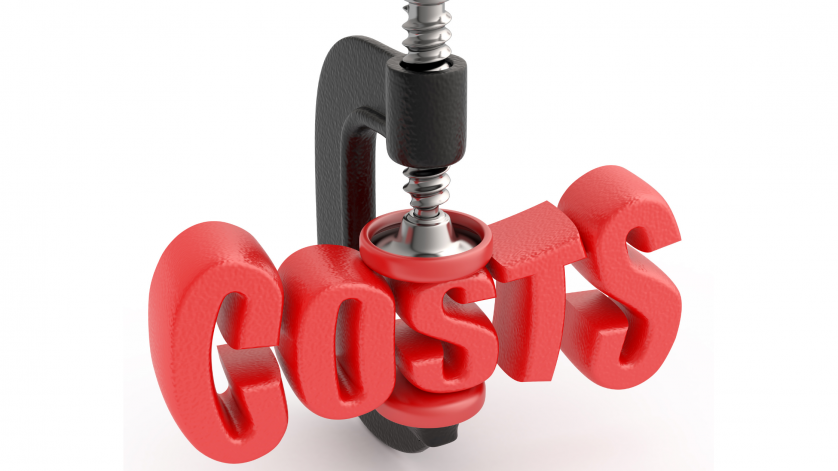Following on from a previous blog post outlining ‘What Recruitment Agencies Do For Their Clients?’, we thought that it would be interesting to give some information regarding the cost of using an agency.
Firstly, if you are a candidate reading this, and ever get asked to hand over money to a recruitment agency in order for them to find you work, walk away / put the phone down / close down the Zoom session. OK, there are a few exceptions to that, which you can read about here, but unless you’re a sportsperson, model or singer, the above advice applies.
From a client perspective, the very short answer is “it depends”. Which doesn’t really help, right? However, lets look at what it might depend on.
Types of Recruitment Fees
Temporary Worker Fee – The agency will pay your temporary worker directly and will charge you a fee based on the worker’s hourly rate plus any other costs (National Insurance, Holiday Pay accrual etc) and then the agency fee on top. This is a hugely variable cost depending on the nature of the role, the duration of the contract and also, potentially, the number of workers required.
Permanent Recruitment Fee – This is most commonly a percentage of your new employee’s salary. If your recruiter is working on a ‘Contingency’ basis, this fee will be charged at the end of the process. So, they do all of the work without any payment from you until your new employee has started. However, you may engage with a recruiter on a ‘Retained’ basis whereby the recruitment fee will be split into 2 or 3 payments; possibly one at the start of the process, one on submission of potential candidates and the final payment at the conclusion of the process.
How many agencies are you using?
Like any negotiation, both parties need to feel that they have benefitted at the end of the process.
If you are using a large number of agencies and will be happy to accept CVs from any agency that contacts you, your recruiter won’t be very motivated to negotiate their fees down the way. Why should they compete with a large number of other agencies, maybe spending a lot of time speaking to candidates who have already been submitted by other agencies, while giving you a generous discount on your recruitment fee?
If you offer a period of exclusivity to your recruiter then you are in a better position for a negotiation on price. It could be two weeks; it could be for the entirety of the process. But if your recruiter knows that they aren’t competing against other agencies, they will be more open to negotiation.
What is the vacancy?
Many agencies will set out their fee structures on a sliding scale with higher salaried positions resulting in a higher percentage fee. For example:
< £20,000……………………15%
£20,001 to £39,999….17.5%
£40,000+…………………….20%
If you are recruiting for a senior position in your business, where it may be that there are fewer suitable candidates, your recruiter will possibly charge you a higher fee as it’s a more difficult job to fill.
Where is the vacancy?
This could also affect the fee rate. If your role will be based in a remote location, less appealing to potential candidates, it makes your recruiter’s job more difficult. They may be less inclined to reduce their fee rates in this circumstance.
So, as you can see, there are many variables that affect the fee that you will pay.
In an ideal world you will get a high quality, quick service at an acceptable price. Remember though, starting the process off by demanding an ultra-low fee could end up a false economy for you. If your recruiter knows that your fee will be significantly less than the fees for the other vacancies on their desk, you might find that your vacancy doesn’t get the attention that you would like, and your role stays unfilled.


